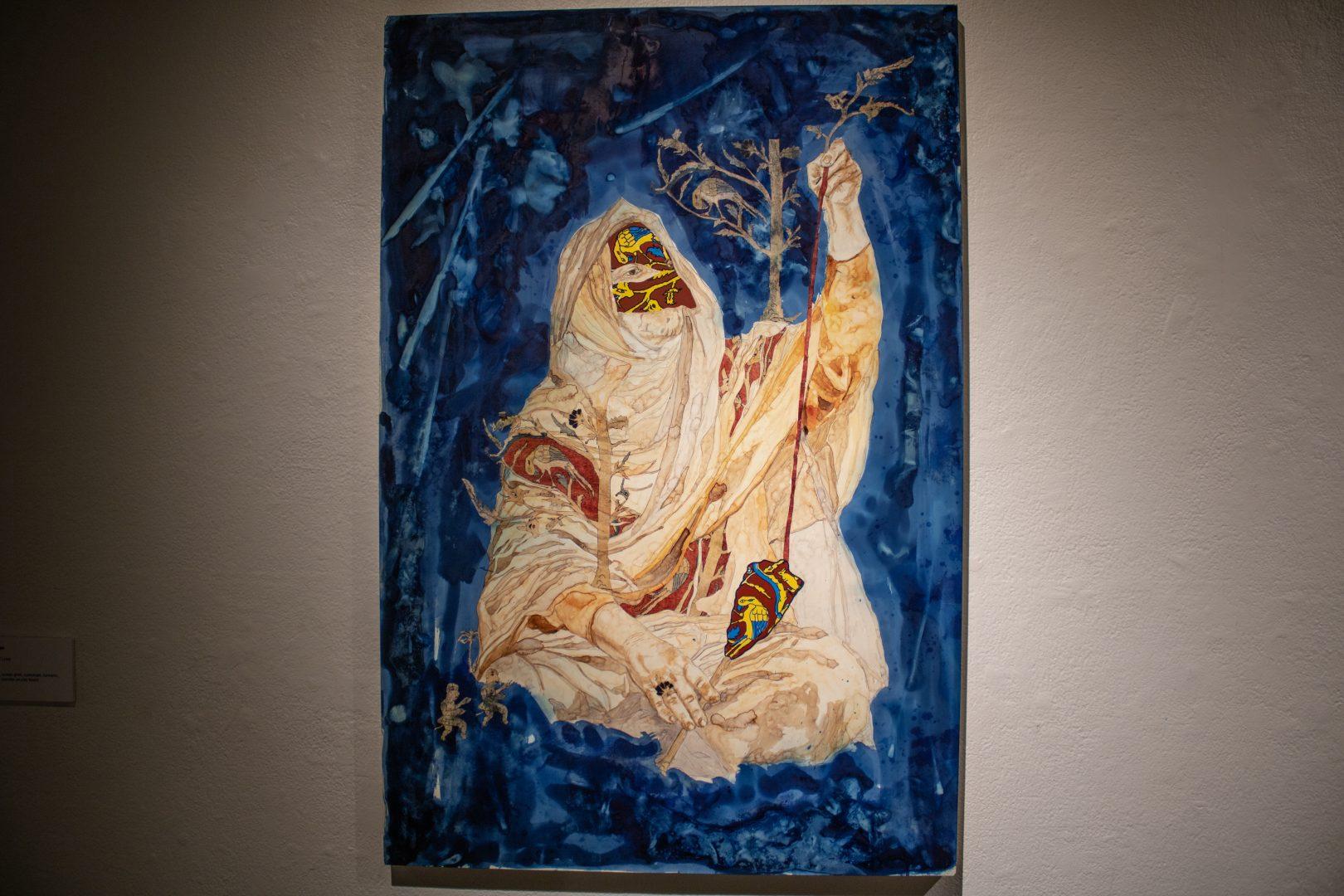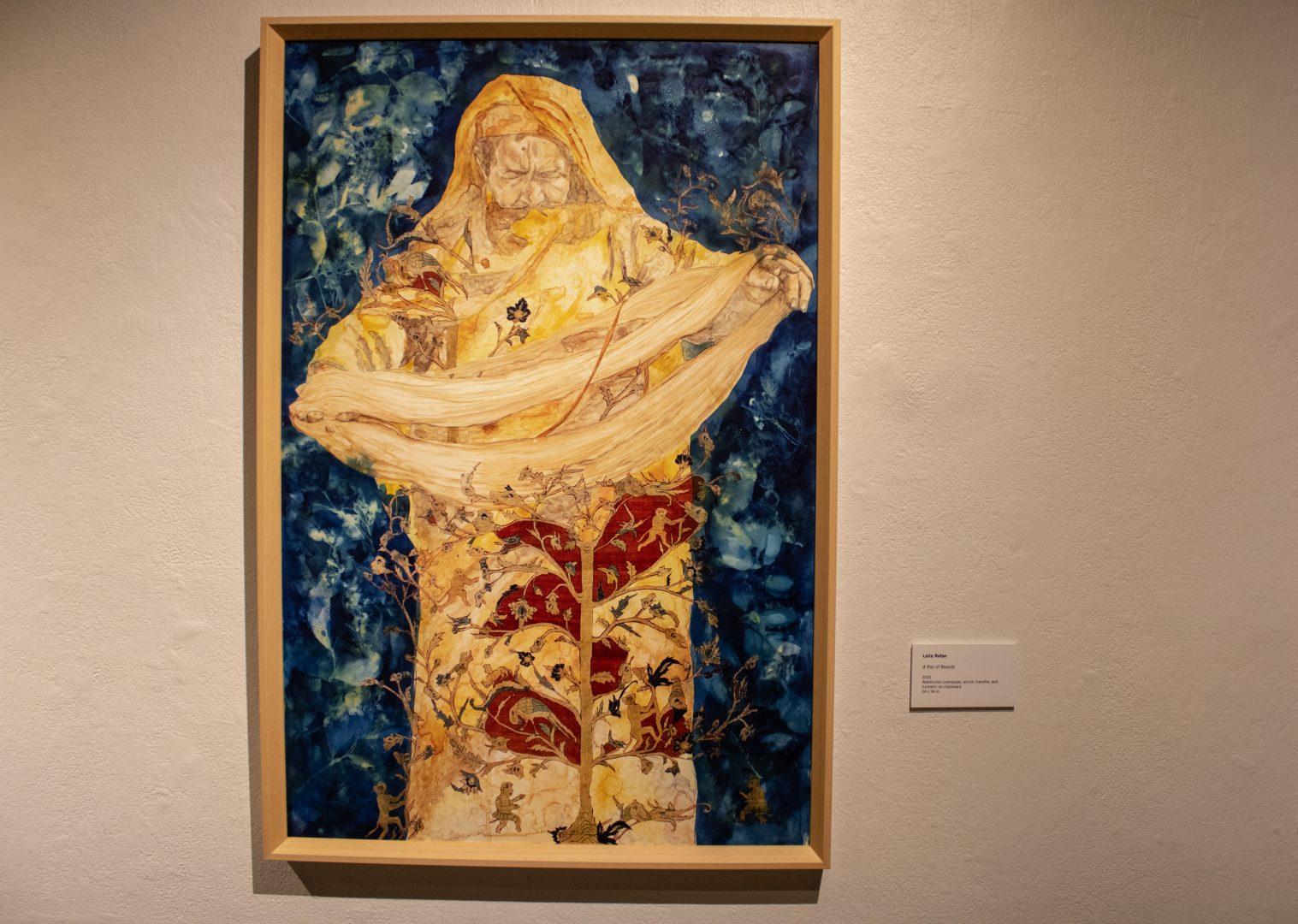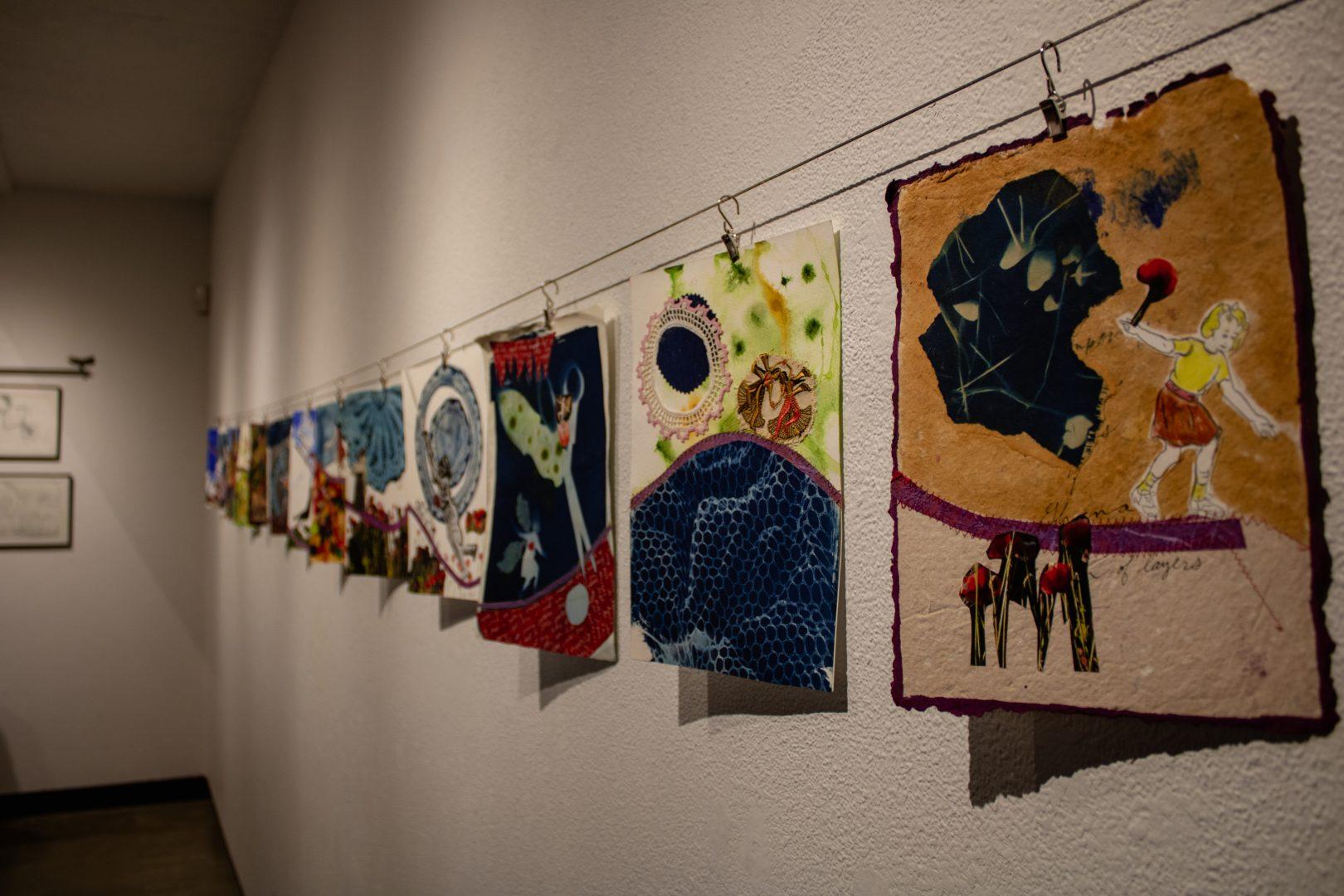Fresno State graduate artists Carolyn Zutler and Leila Rofan are using the art in “Interwoven,” their current Phebe Conley Art Gallery graduate show, to raise awareness regarding the exploitation and suffering of women.
The exhibit, which opened Sept. 29 with a reception, is an opportunity for Zutler to reflect on her own experience with sexual trauma.
“I didn’t really come to terms with my own sexual abuse until I started these paintings,” she said. “I didn’t think it was big enough or bad enough. [I thought] that it wasn’t something that I should complain about.”
Zutler’s pieces include five oil paintings centered on the sexual abuse that five women experienced when they were children, accompanied by panels describing the pieces and the motivations behind them.
One piece, “Shattered and Whole,” is a figurative piece that uses strong red, green and blue brushstrokes to accentuate a white shattered pitcher. A person’s arm rests on a table, casting shadows over it and muting its redness into a black. Zutler uses thin white brushstrokes to shape the cracks of the pitcher and its translucent shadow.
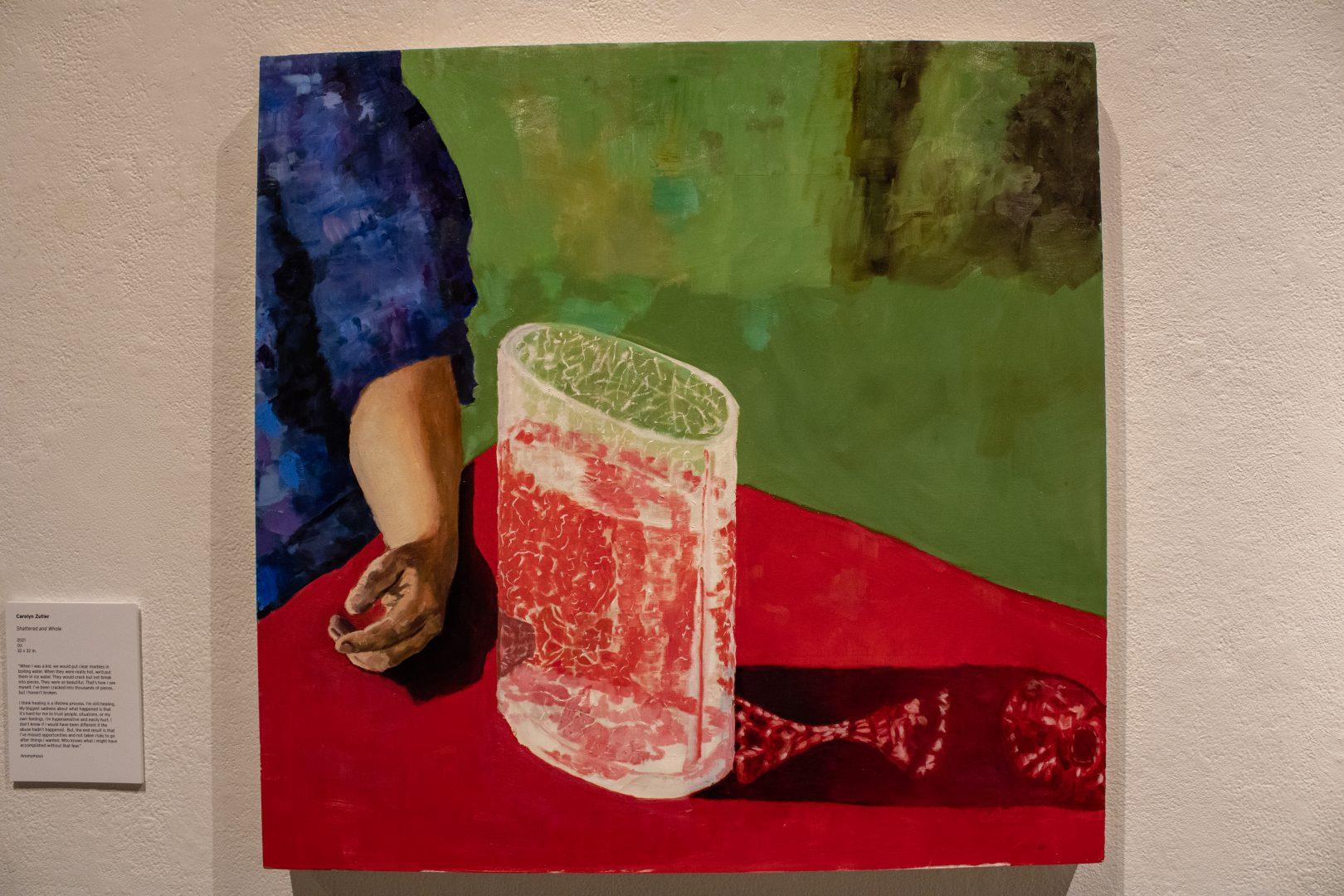
For Zutler, these paintings are an opportunity for women who’ve experienced similar abuse to be more open about their experiences.
“I think when we can own it, and not feel ashamed of it because it’s not our fault, it’s somebody else’s fault, then we can talk about it,” Zutler said. “I think the more we talk about it, the less it will happen.”
Zutler’s work is not confined to oil on canvas. Two of her pieces, “I’ll Be Good” and “Abundance,” are abstract collages featuring scenes of nature on corrugated metal. The pieces are displayed next to each other, and visitors are able to pick up magnetized bugs, leaves and birds from both of the pieces and stick them anywhere on the metal.
“Fragmented Memory” is a mixed-media installation of Zutler’s that uses cyanotypes, fabric, steel, woodcut print and intaglio print to portray insects and birds in nature using very little color. It focuses on Zutler’s own personal experience with sexual abuse, which she describes as “fragmented, flashes of images.”
Visitors can also interact with this piece, which gives them the ability to pull a curtain to reveal or hide certain parts of it.
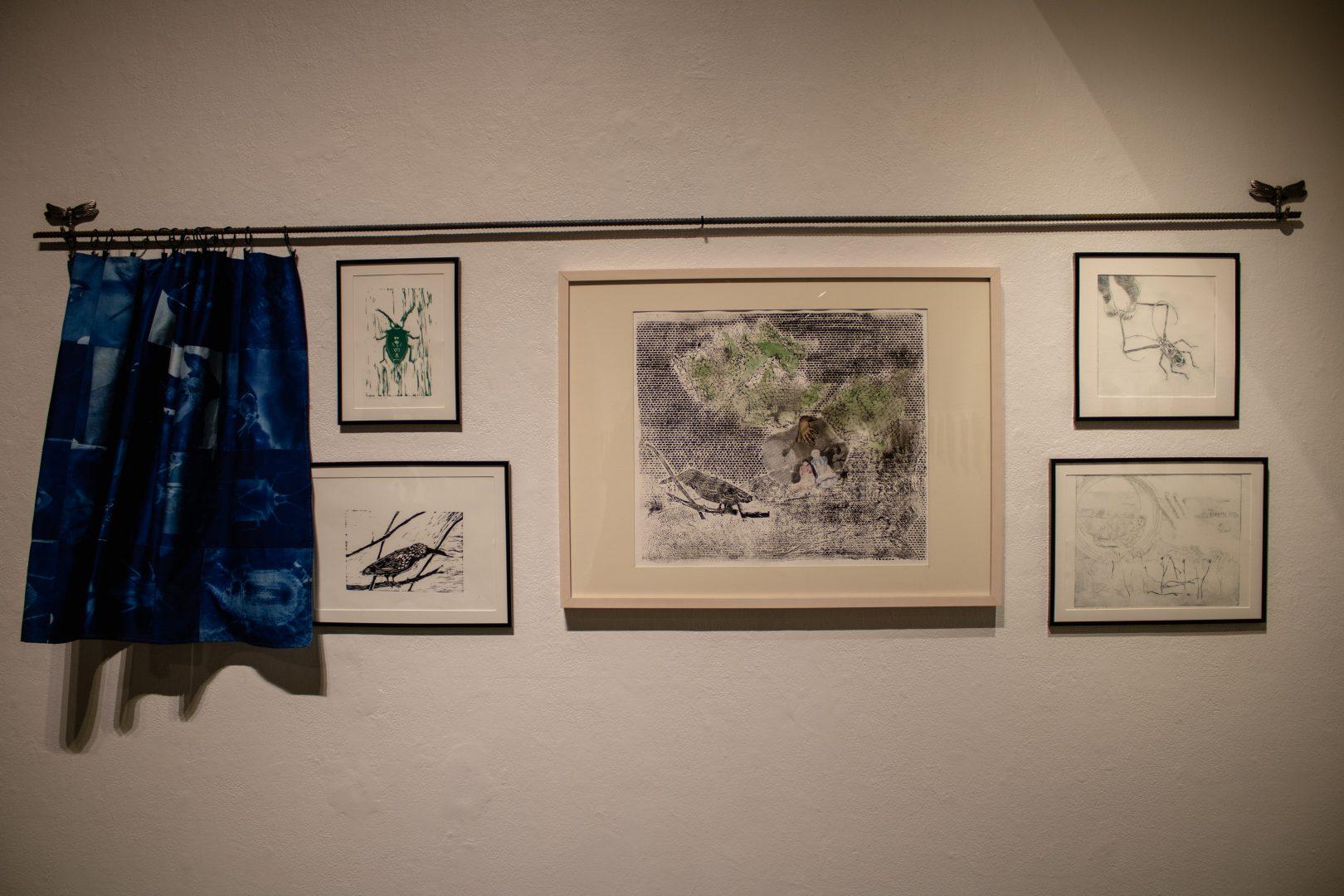
Rofan’s work also focuses on the abuse of women, centering on the oppression women in Iran are currently facing. She uses different media such as gravel, rugs and acrylics.
“I [mainly] choose fragile mediums, like mulberry paper, and I use these clay boards that are very fragile to work with [too],” Rofan said. “They are very delicate and the reason behind it is that, culturally, [women] run into those delicate and vulnerable situations.”
One of Rofan’s pieces, “Heritage,” spans across an entire room. 112 feet long and 6 inches in width, the piece lines a room that is already full of Rofan’s other pieces, displaying symbols that each signify a different idea or creature.
Her centerpiece in the exhibition, “Your Name Is Encrypted,” is a portrait of Mahsa Amini, whose death in the custody of morality police on an accusation of violating the law on headscarves in Iran on Sept. 16 sparked protests.
Amini was arrested for not wearing a hijab in accordance with government standards. Police claim that she suffered a heart attack while in custody, leading her to fall into a coma and die after two days. However, eyewitnesses who were near Amini during her arrest said she was beaten, and leaked medical documents have led many to believe her cause of death to be a brain hemorrhage and a stroke.
Rofan’s piece uses light brushstrokes to depict Amini’s face while also utilizing bold brushstrokes to create a veil around her hair and neck with leaves and plants underneath.
Positioned among six other pieces that each feature a different portrait of a child, Rofan hopes visitors will scan a QR code taking them to a Time magazine article about the protests that erupted after her death.
“As you scan the QR codes, you can see what’s happening [in Iran], raising awareness about what’s happening right now in another country,” Rofan said. “Women are fighting in my country. They’re fighting for their freedom. They’re fighting for their basic rights.”
“Interwoven” will remain on display at the Phebe Conley Art Gallery through Oct. 21 for students, staff and community members who wish to see Zutler’s and Rofan’s work in-person. Gallery hours are 10 a.m. to 4 p.m. Monday through Friday.
The next planned exhibition will be another graduate art show, which will begin on Oct. 27 with a reception held on the same day at 5 p.m.
